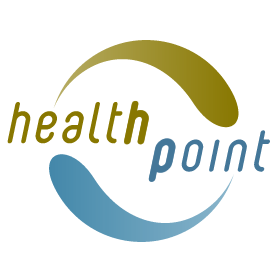Central Auckland > Public Hospital Services > Health New Zealand | Te Whatu Ora - Te Toka Tumai Auckland >
Older People's Health | Auckland | Te Toka Tumai
Public Service, Older People's Health
Description
Older People's Health looks after the over 65-year-old population of Central Auckland and offers assessment, treatment and rehabilitation services.
These services are provided by a team of specialist professionals including doctors, nurses, physiotherapists, occupational therapists, speech language therapists, dietitians, social workers and service coordinators who specialise in conditions that affect older people. They all work together as a team to assess and diagnose your condition and ensure older adults have the support required to live as independently as possible.
There are currently 112 inpatient beds, a domiciliary assessment service and outpatient clinics. Also available is the Community Rehabilitation Programme to assist people who need some assistance to get back to how they were functioning prior to illness or who need help with the transition back to their home situation after a period in hospital.
Care Aims
a) To improve the quality of life of individuals and families/whānau.
b) To improve the health of the population of Central Auckland and assist people to remain well at home. To do this:
- we are committed to strengthening our relationship with other primary, secondary and tertiary care providers
- we provide personal health care and disability support services to people whose health needs can be met at home or community venues
- all of our services have a coordinated, multidisciplinary approach and our staff work towards culturally appropriate service delivery. Interpreters are available when required.
Consultants
-

Dr Himali Aickin
Geriatrician and General Physician
-

Dr Ghassan Al Aranji
Geriatrician
-

Dr Antonia Birry
Geriatrician
-

Dr Alison Charleston
Physician in Geriatric Medicine and Neurology
-

Dr Po'uliva'ati Funaki
Geriatrician and General Physician
-

Dr Aroonsiri Howell
Geriatric Medicine specialist with Clinical interest in HIV and Aging
-
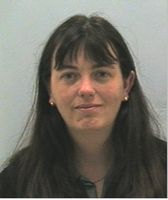
Dr Tracey McMillan
Geriatrician
-

Dr Oliver Menzies
Physician in Geriatric and Internal Medicine
-
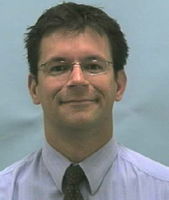
Dr Terry Mitchell
Physician in Geriatric and Internal Medicine
-

Dr Colombapatabandige Peiris
Geriatrician and General Physician
-

Dr Sabin Prodan
Geriatrician and Service Lead Clinician
-

Dr Pooja Singh
Geriatric Medicine
-
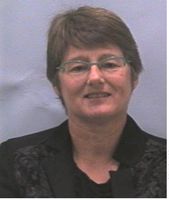
Dr Maree Todd
Geriatrician
-

Dr Jane Walton
Geriatrician/ Service Clinical Director
-

Dr Xu Wang
Geriatrician
-
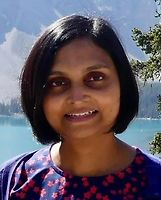
Dr Bodhi Wimalasena
Geriatrician and General Physician
-

Dr Jennifer Yeo
Geriatrician
Referral Expectations
These wards work very closely as a team and a unit. There is a strong Interdisciplinary team (IDT) focus on all four wards. This team is made up of nurses, doctors, physiotherapists, occupational therapists, social workers, dietitians, speech language therapists, pharmacists and others, who all make contributions to the patient's care. Each person within the Interdisciplinary team contributes their own knowledge and skills directly to the plan of care.
What to Expect
You will be referred to hospital if your doctor thinks you would benefit from time in hospital to undergo assessment and treatment of your condition or for rehabilitation. You may be referred from home by your GP or from another ward in the hospital if you need more time and therapy to manage at home.
From your arrival at our hospital we will be working with you to achieve a safe plan for leaving hospital. This will be done in agreement with you, your family/whānau and the team. This may involve a family meeting and a home visit assessment with an occupational therapist before leaving hospital to assess what additional supports you will need at home.
You are a part of the team. One member of the team will be identified as your key worker. He/she will be the key person for you and your family/whānau to ask any questions, or support you to work out what you want to achieve and set a plan for leaving the hospital.
Although there are doctors involved with your care they may not see you every day if you are medically stable. They are always happy to talk with you or your family. Your nurse can set up a time to suit.
The time you spend on the ward depends on the progress you make and whether or not you benefit from daily rehabilitation with the therapists. The purpose of rehabilitation is to regain independence, so you will be encouraged to do as much for yourself as possible during your time on the ward.
Rehabilitation occurs 7 days a week. You may be asked to join a number of activities and groups that all support you getting better.
We ask for your enthusiasm and commitment to the process. We appreciate and encourage your family's involvement in the rehabilitation process.
We are really enthusiastic about you:
- bringing in your own clothes and getting dressed every day
- sitting out of bed during the day and resting back in bed only when necessary
- cooperating in working with the rest of the team to get you back to doing what you want
- having your meals in the dining room or with other patients where possible
- you may be given an exercise program by a physiotherapist that you may be required to undertake yourself with guidance from a physiotherapy team member.
» Older People's Health - Outpatient Services
Our outpatient clinics are held in the Home Health and Older Peoples's Health Building (Building 17) at Greenlane Clinical Centre.
Your GP will refer you to this service if they think you would benefit from seeing a doctor who specialises in care of the elderly to assist with any difficulties related to illnesses affecting you or if they feel you would benefit from a specialist doctor's advice regarding your medical condition.
We commonly see people who have multiple medical problems and medications who are at risk of losing their independence e.g. people with falls, memory problems, continence issues, stroke or mobility problems.
1) an assessment by a doctor in the outpatient clinic to make sure there are no reversible health issues that are affecting your ability to live at home
2) an assessment by a needs assessor at your own home to look at the options to assist you at home or to help with the financial implications and choice of rest home when requested by a doctor
The waiting times for clinics range from 1 week to 3 months, depending on the urgency of the condition described in your GP's referral letter.
Please contact the Contact Centre on the numbers listed above to confirm your appointment. Hearing and/or speech impaired patients are welcome to confirm their appointment via email.
Family members and caregivers are welcome to attend the appointment if you wish.
Please arrive in the Department 15 minutes before your appointment. Every effort will be made to keep to the appointment time, but delays may be experienced.
Should an interpreter be required for you because you do not speak English as a first language, the interpreter will be arranged prior to your appointment.
What to Expect
The average length of an initial clinic appointment is 1 hour with tests occurring afterwards often taking another 30 minutes.
During the clinic appointment you will be asked about any symptoms you have as well as your past medical history. It is very common in this clinic to be asked a series of questions to test your memory. You will have a physical examination and may have blood tests, an ECG (tracing of your heart) and a chest x-ray, depending on what problems you have.
The findings and plan will be discussed with you and a letter sent to your GP.
- any x-rays or other medical information that may be relevant to this appointment
» Older People's Health - Domiciliary Assessment Services
The waiting times for home visits are usually 1-2 weeks.
The visit will take about 1 hour. You will be asked about your symptoms, past medical history and how you are managing daily activities. It is usual to ask a series of questions to test your memory and you will have a physical examination. We encourage family/whānau to be present.
The findings and plans will be discussed with you and a letter sent to your GP.
» Auckland City Memory Service
Our Auckland City Memory Service is held in the Home Health and Older People's Health Building (Building 17) at Greenlane Clinical Centre.
The Memory Service offers an in depth screening and problem-solving service to people who have mild memory problems.
We aim to encourage the independence of people with memory difficulties. We offer support and practical advice to clients and carers, such as recommendations on medication, memory aids, driving ability and/or referral to other specialist agencies that work with people with memory problems. Please, click here for more details.
» Community Rehabilitation Team
This is a home based intensive therapy programme for people who need help to recover from illness or help with a transition back to home from hospital. Please, click here for more details.
Fees and Charges Description
New Zealand citizens or people who have obtained permanent residence are entitled to free health care.
Persons not ordinarily resident in New Zealand will be required to pay the full cost of their treatment. If you are not a New Zealand Resident, or were not born in New Zealand, please bring your passport to your appointment.
Common Conditions & Services
Our Auckland City Memory Service is held in the Home Health and Older Peoples Health Building (Building 17) at Greenlane Clinical Centre. The Memory Service offers an in depth screening and problem-solving service to people who have mild memory problems. We aim to encourage the independence of people with memory difficulties. We offer support and practical advice to clients and carers, such as recommendations on medication, memory aids, driving ability and/or referral to other specialist agencies that work with people with memory problems. What to Expect Your GP or a specialist will refer you to this service due to changes that you, or others close to you, have noticed in your memory and/or your daily functioning. The waiting times for clinics range from 1 week to 2 months, depending on the urgency of the condition described in the referral letter. Please contact the Contact Centre on the numbers listed above to confirm your appointment. Please arrive in the Department on the time. Every effort will be made to keep to the appointment time, but delays may be experienced. What to Bring to your Appointment - A list of your current medications - Any spectacles you are currently using - Any other aids (e.g. hearing aid) - CT head scan reports and any x-rays - Other medical information which may be relevant to this appointment An assessment usually takes around 2 hours. It consists of a detailed interview with yourself and a person who is close to you who can provide information about memory problems you might be having. After the interview you will undergo a brief pen and paper memory test. Brain imaging tests may be requested. In some cases we may recommend further memory assessment to help with diagnosis. A report will be sent to your GP. You will also be offered a follow-up appointment 3-4 weeks later to receive results from the assessment. During your appointment you will be seen by some of the following: Clinical Nurse, Nurse Specialist, Geriatrician, Psychogeriatrician, Psychologist. Should an interpreter be required for you because you do not speak English as a first language, the interpreter will be arranged prior to your appointment.
Our Auckland City Memory Service is held in the Home Health and Older Peoples Health Building (Building 17) at Greenlane Clinical Centre. The Memory Service offers an in depth screening and problem-solving service to people who have mild memory problems. We aim to encourage the independence of people with memory difficulties. We offer support and practical advice to clients and carers, such as recommendations on medication, memory aids, driving ability and/or referral to other specialist agencies that work with people with memory problems. What to Expect Your GP or a specialist will refer you to this service due to changes that you, or others close to you, have noticed in your memory and/or your daily functioning. The waiting times for clinics range from 1 week to 2 months, depending on the urgency of the condition described in the referral letter. Please contact the Contact Centre on the numbers listed above to confirm your appointment. Please arrive in the Department on the time. Every effort will be made to keep to the appointment time, but delays may be experienced. What to Bring to your Appointment - A list of your current medications - Any spectacles you are currently using - Any other aids (e.g. hearing aid) - CT head scan reports and any x-rays - Other medical information which may be relevant to this appointment An assessment usually takes around 2 hours. It consists of a detailed interview with yourself and a person who is close to you who can provide information about memory problems you might be having. After the interview you will undergo a brief pen and paper memory test. Brain imaging tests may be requested. In some cases we may recommend further memory assessment to help with diagnosis. A report will be sent to your GP. You will also be offered a follow-up appointment 3-4 weeks later to receive results from the assessment. During your appointment you will be seen by some of the following: Clinical Nurse, Nurse Specialist, Geriatrician, Psychogeriatrician, Psychologist. Should an interpreter be required for you because you do not speak English as a first language, the interpreter will be arranged prior to your appointment.
Our Auckland City Memory Service is held in the Home Health and Older Peoples Health Building (Building 17) at Greenlane Clinical Centre.
The Memory Service offers an in depth screening and problem-solving service to people who have mild memory problems.
We aim to encourage the independence of people with memory difficulties. We offer support and practical advice to clients and carers, such as recommendations on medication, memory aids, driving ability and/or referral to other specialist agencies that work with people with memory problems.
What to Expect
Your GP or a specialist will refer you to this service due to changes that you, or others close to you, have noticed in your memory and/or your daily functioning.
The waiting times for clinics range from 1 week to 2 months, depending on the urgency of the condition described in the referral letter.
Please contact the Contact Centre on the numbers listed above to confirm your appointment.
Please arrive in the Department on the time. Every effort will be made to keep to the appointment time, but delays may be experienced.
What to Bring to your Appointment
- A list of your current medications
- Any spectacles you are currently using
- Any other aids (e.g. hearing aid)
- CT head scan reports and any x-rays
- Other medical information which may be relevant to this appointment
An assessment usually takes around 2 hours. It consists of a detailed interview with yourself and a person who is close to you who can provide information about memory problems you might be having.
After the interview you will undergo a brief pen and paper memory test.
Brain imaging tests may be requested. In some cases we may recommend further memory assessment to help with diagnosis.
A report will be sent to your GP. You will also be offered a follow-up appointment 3-4 weeks later to receive results from the assessment.
During your appointment you will be seen by some of the following: Clinical Nurse, Nurse Specialist, Geriatrician, Psychogeriatrician, Psychologist.
Should an interpreter be required for you because you do not speak English as a first language, the interpreter will be arranged prior to your appointment.
There are several types of memory problems people can have. If you are referred because of memory concerns it is very helpful to bring along a family member. It is also very important to bring all of your medications with you as these can often affect memory. A full medical examination will be done and you will be asked some questions to test your memory and concentration as well as mood. You are likely to have blood tests looking for some causes of memory loss and, depending on your history, you may be referred for a CT scan of your brain. This is a computerised x-ray, which involves you lying down for about 15 minutes while a machine passes over you. People with memory problems might be referred to our Day Assessment – Auckland City Memory Service. Please go back to the main page to read more about the Service.
There are several types of memory problems people can have. If you are referred because of memory concerns it is very helpful to bring along a family member. It is also very important to bring all of your medications with you as these can often affect memory. A full medical examination will be done and you will be asked some questions to test your memory and concentration as well as mood. You are likely to have blood tests looking for some causes of memory loss and, depending on your history, you may be referred for a CT scan of your brain. This is a computerised x-ray, which involves you lying down for about 15 minutes while a machine passes over you. People with memory problems might be referred to our Day Assessment – Auckland City Memory Service. Please go back to the main page to read more about the Service.
People with memory problems might be referred to our Day Assessment – Auckland City Memory Service. Please go back to the main page to read more about the Service.
This is a condition of gradual loss of memory and other functions of awareness or thinking such as concentration, over time. There are several types of dementia including Alzheimer’s disease and vascular dementia, which is due to the same sort of illnesses that cause stroke. People with dementia and memory problems might be referred to our Day Assessment – Auckland City Memory Service. Please go back to the main page to read more about the Service.
This is a condition of gradual loss of memory and other functions of awareness or thinking such as concentration, over time. There are several types of dementia including Alzheimer’s disease and vascular dementia, which is due to the same sort of illnesses that cause stroke. People with dementia and memory problems might be referred to our Day Assessment – Auckland City Memory Service. Please go back to the main page to read more about the Service.
This is a condition of gradual loss of memory and other functions of awareness or thinking such as concentration, over time. There are several types of dementia including Alzheimer’s disease and vascular dementia, which is due to the same sort of illnesses that cause stroke.
People with dementia and memory problems might be referred to our Day Assessment – Auckland City Memory Service. Please go back to the main page to read more about the Service.
A stroke is where the blood supply to an area of the brain is interrupted causing damage to brain cells. This happens either with a clot in the blood vessel or the blood vessel bursting. The effects of a stroke depend on where in the brain, and how big, the interruption to blood flow is. Most people who have had a stroke are admitted to hospital. If the stroke has had significant physical effects you may be admitted to our rehabilitation unit aimed at increasing your independence, preventing complications from stroke and preventing further strokes. For more information on stroke a very useful website is the New Zealand Stroke Foundation site www.stroke.org.nz People who suffered a stroke might be referred to our Day Assessment – Stroke Clinic. Please go back to the main page to read more about the Clinic.
A stroke is where the blood supply to an area of the brain is interrupted causing damage to brain cells. This happens either with a clot in the blood vessel or the blood vessel bursting. The effects of a stroke depend on where in the brain, and how big, the interruption to blood flow is. Most people who have had a stroke are admitted to hospital. If the stroke has had significant physical effects you may be admitted to our rehabilitation unit aimed at increasing your independence, preventing complications from stroke and preventing further strokes. For more information on stroke a very useful website is the New Zealand Stroke Foundation site www.stroke.org.nz People who suffered a stroke might be referred to our Day Assessment – Stroke Clinic. Please go back to the main page to read more about the Clinic.
People who suffered a stroke might be referred to our Day Assessment – Stroke Clinic. Please go back to the main page to read more about the Clinic.
Parkinson's disease is a progressive neurological condition affecting movements such as walking, talking and writing. Parkinson's has three main symptoms: tremor, stiffness and slowness of movement (bradykinesia). The cause of Parkinson's is not completely understood. A group of nerves in the brain called the substantia nigra slowly degenerate and cease to produce a chemical messenger called dopamine. When more than half of dopamine is lost, the symptoms of Parkinson's disease are produced. Parkinson’s disease cannot be cured. Treatment focuses on managing symptoms and generally involves medications which attempt to replace the dopamine that is lacking. There is a no single test to diagnose Parkinson’s disease. In its early stages a diagnosis of Parkinson’s disease can be very difficult even for an experienced doctor. If Parkinson’s disease is suspected, a referral to a neurologist (nervous system specialist) may be recommended. Even then a period of observation and reassessment may be needed before the diagnosis is confirmed. The diagnosis is based on: • the person’s medical history and symptoms • the neurological and physical examination • imaging techniques such as computerised tomography (CT) or magnetic resonance imaging (MRI) may be used to rule out other conditions People with diagnosed Parkinson’s disease might be referred to our Day Assessment – Parkinson's Clinic. Please go back to the main page to read more about the Clinic. Parkinson's Disease - Nutrition & Swallowing Clinic (PDF, 3.1 MB)
Parkinson's disease is a progressive neurological condition affecting movements such as walking, talking and writing. Parkinson's has three main symptoms: tremor, stiffness and slowness of movement (bradykinesia). The cause of Parkinson's is not completely understood. A group of nerves in the brain called the substantia nigra slowly degenerate and cease to produce a chemical messenger called dopamine. When more than half of dopamine is lost, the symptoms of Parkinson's disease are produced. Parkinson’s disease cannot be cured. Treatment focuses on managing symptoms and generally involves medications which attempt to replace the dopamine that is lacking. There is a no single test to diagnose Parkinson’s disease. In its early stages a diagnosis of Parkinson’s disease can be very difficult even for an experienced doctor. If Parkinson’s disease is suspected, a referral to a neurologist (nervous system specialist) may be recommended. Even then a period of observation and reassessment may be needed before the diagnosis is confirmed. The diagnosis is based on: • the person’s medical history and symptoms • the neurological and physical examination • imaging techniques such as computerised tomography (CT) or magnetic resonance imaging (MRI) may be used to rule out other conditions People with diagnosed Parkinson’s disease might be referred to our Day Assessment – Parkinson's Clinic. Please go back to the main page to read more about the Clinic. Parkinson's Disease - Nutrition & Swallowing Clinic (PDF, 3.1 MB)
Parkinson's disease is a progressive neurological condition affecting movements such as walking, talking and writing. Parkinson's has three main symptoms: tremor, stiffness and slowness of movement (bradykinesia).
The cause of Parkinson's is not completely understood. A group of nerves in the brain called the substantia nigra slowly degenerate and cease to produce a chemical messenger called dopamine. When more than half of dopamine is lost, the symptoms of Parkinson's disease are produced.
Parkinson’s disease cannot be cured. Treatment focuses on managing symptoms and generally involves medications which attempt to replace the dopamine that is lacking.
There is a no single test to diagnose Parkinson’s disease. In its early stages a diagnosis of Parkinson’s disease can be very difficult even for an experienced doctor. If Parkinson’s disease is suspected, a referral to a neurologist (nervous system specialist) may be recommended. Even then a period of observation and reassessment may be needed before the diagnosis is confirmed.
The diagnosis is based on:
• the person’s medical history and symptoms
• the neurological and physical examination
• imaging techniques such as computerised tomography (CT) or magnetic resonance imaging (MRI) may be used to rule out other conditions
People with diagnosed Parkinson’s disease might be referred to our Day Assessment – Parkinson's Clinic. Please go back to the main page to read more about the Clinic.
- Parkinson's Disease - Nutrition & Swallowing Clinic (PDF, 3.1 MB)
These are not a natural part of aging. There are many reasons why people fall over and a review of your medical problems and medications may well reveal some reasons for falling that can be fixed. If you have lots of falls, seeing a specialist as well as the physiotherapist and occupational therapist can reduce your chances of falling again. You will be asked about the circumstances surrounding your falls and it is helpful if family or friends who witnessed your falls come into the clinic with you. You will have an examination looking at your general health as well as strength, balance, vision and memory. An occupational therapist may come to your home to look into any changes that can be made to improve safety. For more information on falls prevention the ACC website has information on http://www.acc.co.nz/preventing-injuries/falls/index.htm You may be referred to Home Health Physiotherapy - Falls Prevention Programme.
These are not a natural part of aging. There are many reasons why people fall over and a review of your medical problems and medications may well reveal some reasons for falling that can be fixed. If you have lots of falls, seeing a specialist as well as the physiotherapist and occupational therapist can reduce your chances of falling again. You will be asked about the circumstances surrounding your falls and it is helpful if family or friends who witnessed your falls come into the clinic with you. You will have an examination looking at your general health as well as strength, balance, vision and memory. An occupational therapist may come to your home to look into any changes that can be made to improve safety. For more information on falls prevention the ACC website has information on http://www.acc.co.nz/preventing-injuries/falls/index.htm You may be referred to Home Health Physiotherapy - Falls Prevention Programme.
Urinary incontinence or a loss of bladder control is the involuntary passage of urine. There are many causes and types of incontinence and many treatment options. Treatments range from simple exercises to surgery. Women are affected by incontinence more often than men. You may be referred to the Home Health Continence Service.
Urinary incontinence or a loss of bladder control is the involuntary passage of urine. There are many causes and types of incontinence and many treatment options. Treatments range from simple exercises to surgery. Women are affected by incontinence more often than men. You may be referred to the Home Health Continence Service.
Osteoporosis is a disease that weakens your bones. Osteoporosis is not painful but it makes your bones more prone to breaking (fracture). Women are more likely than men to suffer from osteoporosis and as you get older you are more likely to have it. Tests Osteoporosis can be diagnosed by measuring bone mineral density (BMD). This test involves taking x-rays or a computer tomography (CT) scan of the bones in your spine, wrist, arm or leg. You may be asked to have a blood test to look for reasons why you might have osteoporosis. Treatment There is no cure for osteoporosis, but there are treatments that can improve bone strength and reduce your chances of breaking a bone. If you are diagnosed with osteoporosis you may be prescribed several medications to improve your bone strength. You will have follow-up either with your GP or specialist to make sure that the medication suits you. You will be given some more detailed reading about things you can do to help manage your osteoporosis and about the type of medication you are on.
Osteoporosis is a disease that weakens your bones. Osteoporosis is not painful but it makes your bones more prone to breaking (fracture). Women are more likely than men to suffer from osteoporosis and as you get older you are more likely to have it. Tests Osteoporosis can be diagnosed by measuring bone mineral density (BMD). This test involves taking x-rays or a computer tomography (CT) scan of the bones in your spine, wrist, arm or leg. You may be asked to have a blood test to look for reasons why you might have osteoporosis. Treatment There is no cure for osteoporosis, but there are treatments that can improve bone strength and reduce your chances of breaking a bone. If you are diagnosed with osteoporosis you may be prescribed several medications to improve your bone strength. You will have follow-up either with your GP or specialist to make sure that the medication suits you. You will be given some more detailed reading about things you can do to help manage your osteoporosis and about the type of medication you are on.
Osteoporosis is a disease that weakens your bones. Osteoporosis is not painful but it makes your bones more prone to breaking (fracture). Women are more likely than men to suffer from osteoporosis and as you get older you are more likely to have it.
Tests
Osteoporosis can be diagnosed by measuring bone mineral density (BMD). This test involves taking x-rays or a computer tomography (CT) scan of the bones in your spine, wrist, arm or leg. You may be asked to have a blood test to look for reasons why you might have osteoporosis.
Treatment
There is no cure for osteoporosis, but there are treatments that can improve bone strength and reduce your chances of breaking a bone. If you are diagnosed with osteoporosis you may be prescribed several medications to improve your bone strength. You will have follow-up either with your GP or specialist to make sure that the medication suits you. You will be given some more detailed reading about things you can do to help manage your osteoporosis and about the type of medication you are on.
Document Downloads
- Catchment area (PDF, 36.1 KB)
Visiting Hours
Inpatients can stay in one of OPH four wards.
Awatea and Marino wards are on level 14 of the Support Building. Remuera and Rangitoto wards are on Level 13 of the Support Building (Building 1).
Visiting hours are 8.00am - 8.00pm each day.
However, you can negotiate times outside of these hours with the team.
Other
New Zealand Stroke Foundation www.stroke.org.nz
Alzheimers Auckland www.alzheimers.co.nz
Parkinsons New Zealand www.parkinsons.org.nz
Parkinsons Auckland www.parkinsonsauckland.org.nz
Age Concern New Zealand www.ageconcern.org.nz
Website
Contact Details
Auckland City Hospital
Central Auckland
Website
Inpatient Enquiries (enquiries about a planned admission to the OPH ward in the hospital):
Ph: (09) 307 4949 ext 22879 (Referrals Administrator)
2 Park Road
Grafton
Auckland 1023
Street Address
2 Park Road
Grafton
Auckland 1023
Postal Address
Private Bag 92189
Auckland Mail Centre
Auckland 1142
Was this page helpful?
This page was last updated at 10:23AM on March 13, 2025. This information is reviewed and edited by Older People's Health | Auckland | Te Toka Tumai.
